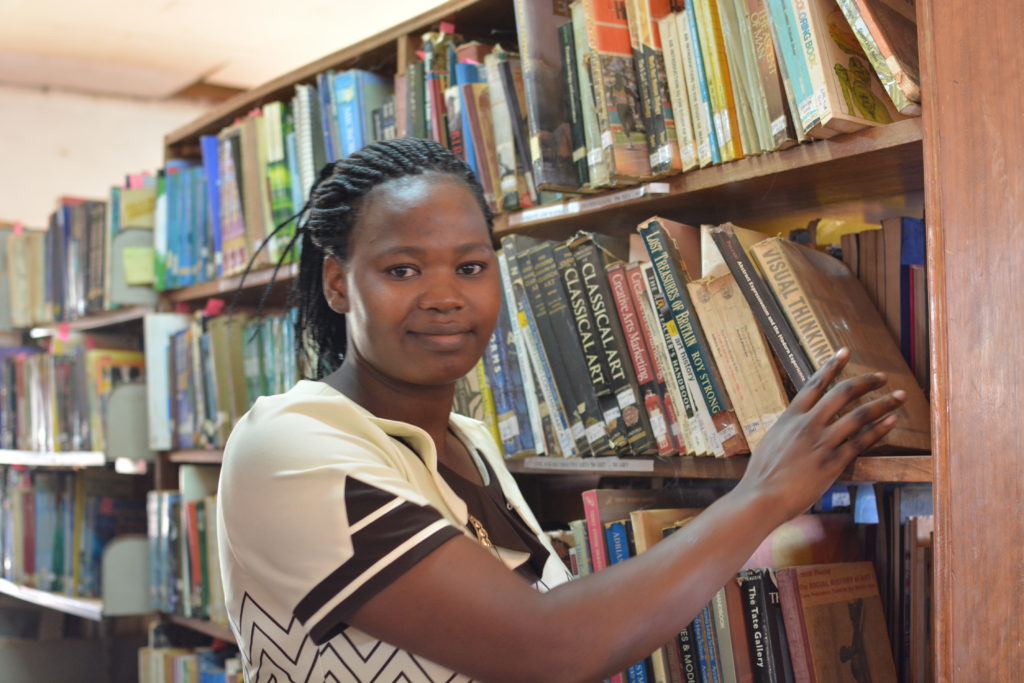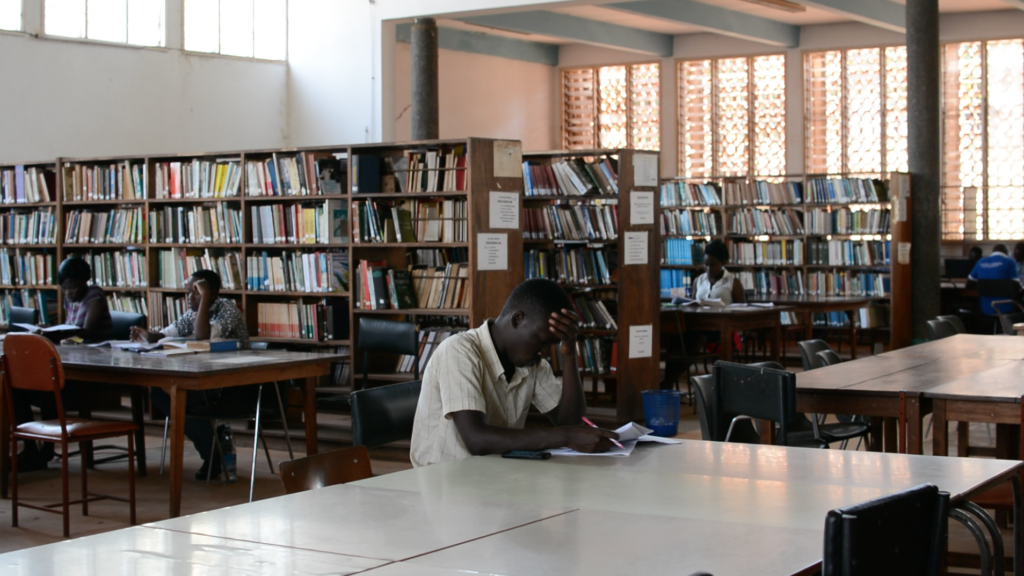Advocacy for Information Literacy and Access to Academic Resources in Uganda
Mary Acanit is an Assistant Librarian at Kyambogo University Library Services in Kampala, Uganda. She is currently finishing her master’s degree in information science at Makerere University. She is one of two winners of the Research4Life/INASP Advocacy Competition

Mary Acanit comes from a large family. Born and raised in a small village in northern Uganda, she is the fifth of seven siblings. As a young girl she used to follow her older sister to school and still remembers walking along dirt paths looking in awe at the nature all around her. Mary always had a particular interest in the scientific world and excelled greatly in chemistry and biology. She was always the best in her class.
Despite financial constraints, her father encouraged her to pursue her dreams and supported her when she enrolled at the University of Makerere. Law studies was her first career choice, but she changed her mind as she filled in the unversity application, ticking the “Information Sciences” box. It was a discipline she had never heard of but the word “Science” caught her attention. Today, more than 10 years later and about to graduate with her MA, Mary realizes that Information Sciences was the best choice she could have made.
As an Assistant Librarian in charge of the ICT services at Kyambogo University Library Services in Kampala, Mary coordinates all ICT-related activities in the library ranging from maintaining the hardware and software to administering the library catalog system, managing the institutional repository, identifying the most useful e-resources and much more.
“The role of the library in an academic institution can not be underestimated. Libraries play a central role in research through acquiring and making accessible research information to the academic community. Libraries also go out of their way to forecast the information needs of their communities,” she said.

What Mary enjoys most however, is organizing and conducting training in Information literacy and digitization. Tapping the extensive Research4Life resources —and the resources available through INASP’s access initiative via the Ugandan library consortium CUUL— over the past few years, Mary has trained the staff at more than 10 libraries at Kyambogo University.
“I was part of the library management team that lobbied for the connection of Kyambogo University to RENU, the Research and Education Network for Uganda. With this achieved, I was able to obtain a budget that allowed us to network three out of our four library service centres, which included providing each one with wireless internet access. Without this, I wouldn’t have been able to conduct the trainings,” she explained.
Mary has been tenacious in her work to advocate for better resources and support for the university library. She knows that digital information is vital for students and the research staff so her work reaches far beyond her own university’s doors:
“I have represented Kyambogo University at the Consortium of Uganda University Libraries, contributing ideas that have been adopted for inclusion into institutional and national library policies e.g joining RENU, e-resource licensing, vice chancellor’s forum, open access policy development, among others.”
The Kyambogo University library is keen to evolve from more traditional modes of operation to adopt new and emerging technologies. What’s needed for this however, is a reliable infrastructure. Thanks to the work of Mary and her team, the construction of a “state of the art library with virtual capabilities” and an ICT-based library with a seating capacity of over 500 users, is no longer a dream and soon both the students and researchers will have a space with the resources they need to build an evidence-based future.
This story is part of the Information in Action case study collection. Read more stories from Research4Life users.





